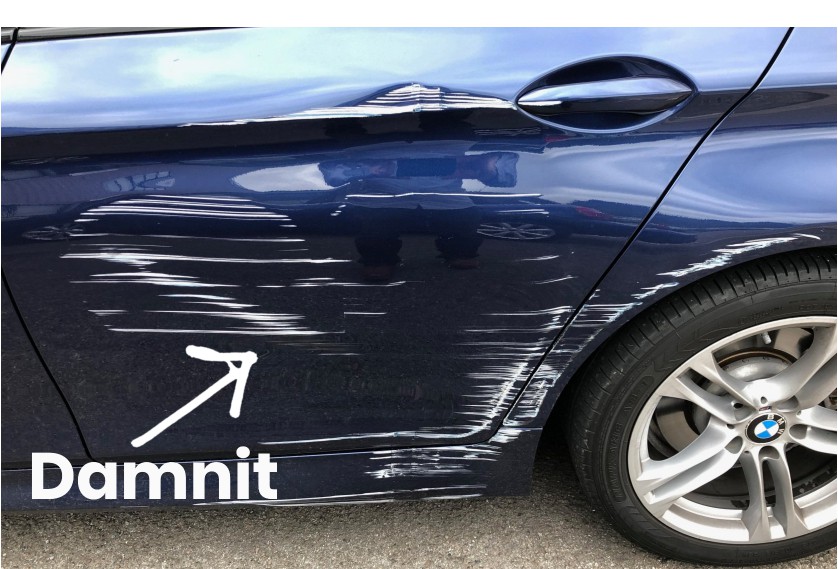There's a multi storey car park I use in my home city of Milton Keynes now and again.
It's very tight, especially for bigger cars. And a couple of weeks ago, the car park and my car had a little falling out. The car park won.

Yes I managed to completely wreck 3 panels 🙄
The crash repair guy Rob said it was an insurance job as it needed a new door and sill.
So for a few days while they fixed it, I was stuck with the car of shame.

Sigh...
My car felt epic once I got it back. Apart from one aspect.
Where the other doors closed with the minimal of effort; the new door needed a heftier push to close properly.
Nothing too bad, you understand. But the whole family agreed that it "wasn't right".
I should add at this stage that we have no car knowledge at all in my family. We don't know what we don't know.
So I took it back in to see Rob at the crash repair centre.
The second I started to explain what I thought was wrong he said: "Oh, this is perfectly normal. The new door rubber is stiff... it'll loosen up in a few weeks.
"Loads of people come back about this!!"
😲
To Rob and his team, this was an every day routine piece of information. To the clients this alleviated their worry.
I couldn't stop myself from telling Rob that any time loads of people behave in the same way, it's a red flag that something needs to change in the business.
By stopping loads of people having to return about the same thing, customer happiness shoots up, and the burden on staff goes down.
I suggested a handover checklist to ensure the repair is properly explained to the client. Or a leaflet to reassure them about common questions (and give them something to refer to at home).
Once a business consultant, always a business consultant.
This is the same in your MSP. Your clients don't know what's "normal"
What's normal, every day and (frankly) mundane to you, is not normal to people who don't know what they don't know.
And that's the vast majority of your clients.
So, three questions to ask yourself:
1) What are the routine things that "loads of people" ask about? These are flags of potential areas of improvement
2) How can you better explain what you do, and why you do it?
Remember they don't absorb information as fast as you. This is one instance where takeaway printed information is gold dust. Yes it's better than a link on your website, because it's right there in front of them.
3) What system could you put in place to spot when new "routine problems" crop up again in the future
Clue - your front line staff will spot new routine problems long before you will. Find a way to motivate them to flag up new issues to you and your management team.




